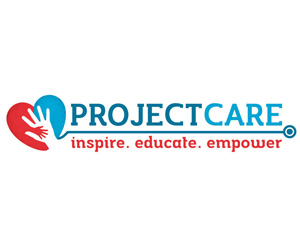 Persons with mental illness must often contend with negative public perceptions or misconceptions about their conditions. But what happens when these public perceptions are internalised?
Persons with mental illness must often contend with negative public perceptions or misconceptions about their conditions. But what happens when these public perceptions are internalised?
For the first time, researchers from the Institute of Mental Health (IMH) have found that self-imposed stigma may influence the impact of perceived stigma, quality of life, self-esteem and functioning in persons with mental illness. These were the findings of an 18-month study involving 280 psychiatric outpatients from IMH who were suffering from depression, schizophrenia, anxiety or obsessive compulsive disorder (OCD).
Self-stigma occurs when people with mental illness accept, internalise and apply the negative beliefs others may have towards them. In addition to symptoms associated with their mental health condition, affected individuals may experience feelings of shame, rejection or hopelessness, which can in turn negatively impact their quality of life, general functioning or self-esteem.
Studies have also shown a correlation between self-stigma and poor outcomes among people with mental illness, including reduced quality of life or life satisfaction, difficulties obtaining employment and/or housing, as well as treatment adherence. As many as 43.6 percent of persons with mental illness in Singapore may experience moderate to high levels of self-stigma.
“Self-stigma is directly influenced by negative public beliefs and polarising viewpoints. It often leads to individuals delaying seeking help, with some avoiding treatment completely to reduce any association with mental illness,” said Assoc Professor Mythily Subramaniam, director of the Research Division at IMH, and co-author of the research papers. “This further underlines the need for us to dispel public misconceptions about mental illness, and to impart coping skills to people with mental illness.”
A free concert
To raise awareness and reduce stigma about mental health issues in Singapore, 25 agencies and community partners from the healthcare and social services sectors have come together to organise “Voice Out” – a free outdoor concert at the Singapore Botanic Gardens, Shaw Foundation Symphony Stage, on October 7, 2017. Over 2,500 people are expected to attend.
Held in conjunction with the annual World Mental Health Day, the concert features a line-up of local artistes, many of whom are mental health advocates, as well as a special guest appearance by international Mandopop-star, Stefanie Sun.
Pre-concert fringe activities will include eight Human Library stations, manned by mental health advocates and peer support specialists who will share about their personal experiences with mental illness. Participants can also try their hand at therapeutic art activities and join in a mass mindfulness session.
To give a voice to persons with mental health issues, an original song entitled “Voice Out” was composed especially for the event. Co-written by general practitioner and mental health advocate, Dr Joel Foo, the song encourages individuals to ask after and show their concern for those with mental health conditions. The music video is performed by people from all walks of life, including a peer in recovery, a caregiver and nurse, symbolising members of the community coming together to show their acceptance and support for persons with mental health issues.
Assoc Prof Chua Hong Choon, CEO of IMH said, “Persons living with mental illness face challenges such as social isolation and discrimination as they are often stereotyped as being incompetent, unpredictable and even dangerous. When such discriminations are internalised, these persons start to develop self-stigma which hinders them from reaching out for help. We need to break this cycle by coming forward to talk about mental illness. That is what we hope to achieve through the Voice Out concert.
“Featuring mental health advocates, caregivers and volunteers, we want to send a strong message to be bold to speak up for yourself and others. Speaking about mental health promotes understanding. And when the community understands mental health issues better, it becomes the support network that will end isolation and promote social inclusion.”
Voice Out is being co-organised by several organisations including the Agency for Integrated Care, IMH, National Council of Social Service, Health Promotion Board, MINDSET Care, Alzheimer’s Disease Association, Caregivers Alliance, Changi General Hospital, Clarity Singapore, Club HEAL, Filos Community Services, National Healthcare Group, O’Joy Care Services, Project We Forgot, Samaritans of Singapore, Silver Ribbon (Singapore) Singapore, Anglican Community Services, Singapore Association for Mental Health, St Luke’s Hospital and TOUCH Community Services.













